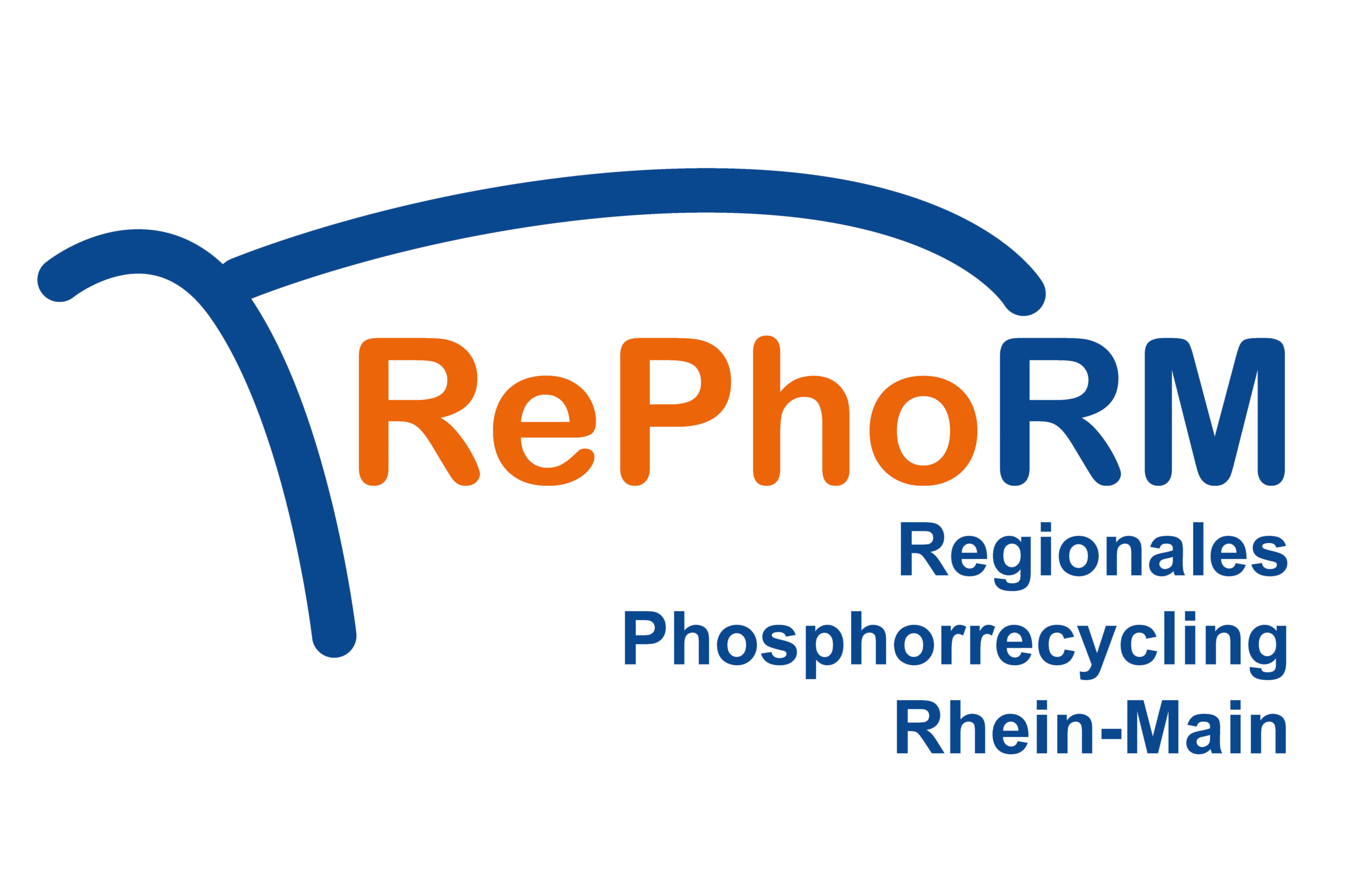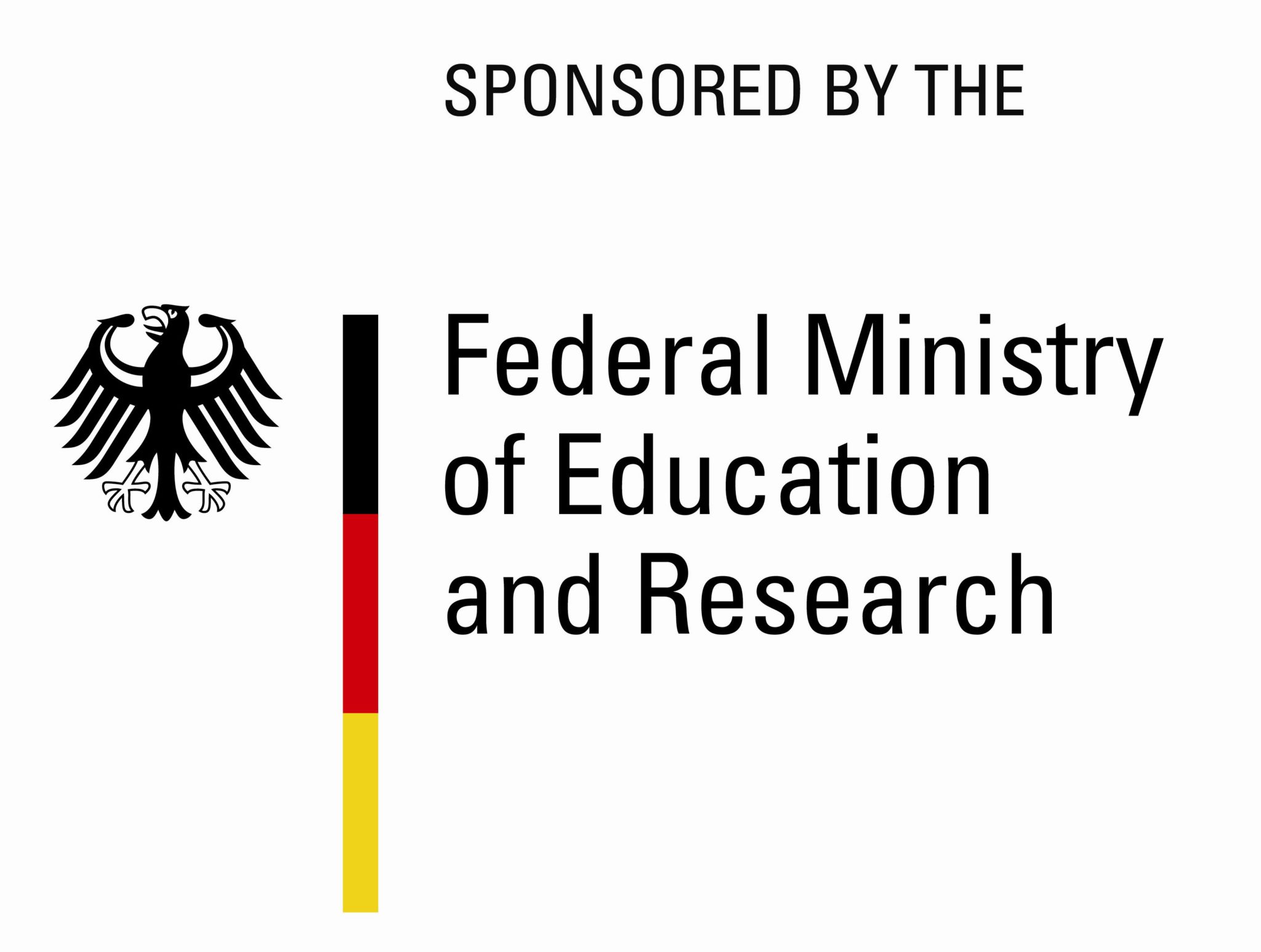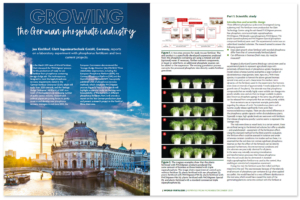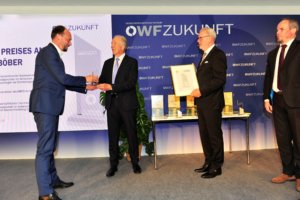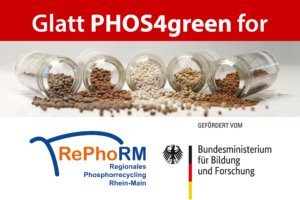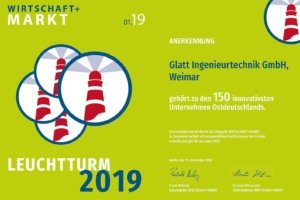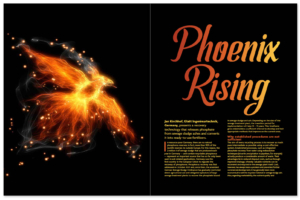Large-scale implementation of the further developed PHOS4green technology for P-recovery from sewage sludge ash in Industriepark Höchst
The joint project “RePhoRM” develops and implements a technological as well as organisational joint solution for phosphorus recycling in the Rhine-Main area. Based on the mono-sludge incineration capacity and its potential expansion in the Frankfurt Rhine Main metropolitan region, a cooperative phosphorus recovery from sewage sludge ash is to be implemented. In accordance with the Hessian resource protection strategy, a fertiliser granulate is produced as a phosphorus recyclate which can be used directly to close the regional nutrient cycle in agriculture. When implementing phosphorus recycling, the particular interests of the partners in the network must be taken into account with regard to the technology for phosphorus recovery and the formation of a phosphorus recycling network. From a technological point of view, the aim is to remove heavy metals from the sewage sludge ash before the actual phosphorus recovery. Therefore, the project will further develop the PHOS4green technology for the production of fertiliser granules by removing heavy metals from (input) sewage sludge ash and implement the process on a large scale in Industriepark Höchst. In addition to an economic and ecological study of phosphorus recycling, the integrated solution will be legally assessed and organised.
The overall objectives of the “RePhoRM” project are:
- Large-scale implementation of the further developed PHOS4green technology for P-recovery from sewage sludge ash in Industriepark Höchst.
- Inter-state collaborative solution for P-recycling in the Frankfurt Rhine Main metropolitan region, taking into account the key operators of mono-sludge incineration and wastewater treatment plants.
Focus of work
- Quantitative and qualitative recording and balancing of the sewage sludge ash flows in the context of a superordinate integrated solution
- Recording and balancing of heavy metal inputs into the sewerage system and the wastewater treatment plants of the Frankfurt am Main municipal wastewater treatment plant
- Development of possible recommendations for action to minimize the input of heavy metals into the municipal wastewater
- Investigation of the dissolution and separation of heavy metals from sewage sludge ashes in laboratory and demonstration scale
- Optimization of spray granulation to the changed conditions caused by the removal of heavy metals
- Evaluation of the fertilizer conformity of the obtained fertilizer granulate against the background of recycling aspects and acceptance in agriculture
- Accompanying life cycle assessment of the technical development for the removal of heavy metals and life cycle assessment of phosphorus recycling
- Development of a legal and organizational framework for the design of a phosphorus recycling network
- Economic analysis of the integrated solution and preparation of a business case
- Large-scale implementation of phosphorus recycling as an integrated solution in the Rhein-Main area
Glatt Ingenieurtechnik GmbH, based in Weimar, Germany, is contributing its expertise to two subprojects: planning and construction of a container plant at Industriepark Höchst and studies on spray granulation of purified secondary phosphorus.
As specialists in materials management, the scientists at Darmstadt Technical University’s Wastewater Engineering Department are also responsible for basic research and a large part of the analyses. Practical implementation will be carried out by Infraserv GmbH & Co. Höchst KG in Industriepark Höchst. Glatt is not only responsible for engineering, but also supplies the container modules. Sewage sludge or sewage sludge ash as well as extensive data and experience are contributed by the city of Frankfurt am Main – Stadtentwässerung Frankfurt am Main (SEF), Abwasserverband Langen/Egelsbach/Erzhausen (AVLEE), ENTEGA Abwasserreinigung and TVM Thermische Verwertung Mainz GmbH (TVM). Fraunhofer IWKS is focusing on recyclable material cycles and resource strategies and, in collaboration with Darmstadt Technical University, is developing the process that removes heavy metals from the ashes. The demonstration plant is used to test the adapted heavy metal separation from the sewage sludge ashes. In order to develop an environmentally friendly and resource-efficient technical solution, scientists from the Department of Material Flow Management and Resource Economics at the TU Darmstadt are accompanying the development process from an ecological balance sheet perspective from the very beginning. The legal and economic implementation of the recycling plan is being examined by the law firm Becker Büttner Held, which specializes in energy, water and infrastructure management.
Department head Prof. Dr.-Ing. Markus Engelhart of Darmstadt Technical University says about the importance of the project for the Rhine-Main region: “We want to proactively meet the challenge and develop a suitable technical as well as organizational concept for phosphorus recycling. The project is of strategic importance for the metropolitan region, because not only agricultural but also industrial material cycles are being considered here. Given the challenges we face with regard to the phosphorus cycle, the collaborative efforts of all stakeholders are already very valuable at this point in time and are exactly the right signal for the future.”
Project partner
The “RePhoRM” research project is being carried out by both scientific-university partners and industrial partners in order to develop a joint solution for phosphorus recycling in the Rhine-Main region. The project is coordinated by the Department of Wastewater Technology at the IWAR Institute.
Click here for the website of “RePhoRM”. Further information is provided here.
Partner institutions:
-
Technische Universität Darmstadt, Institut IWAR Fachgebiet Abwassertechnik (coordination)
- Technische Universität Darmstadt, Institut IWAR, Fachgebiet Stoffstrommanagement und Ressourcenwirtschaft, Darmstadt
- TVM Thermische Verwertung Mainz GmbH, Mainz
- Stadt Frankfurt am Main, Stadtentwässerung Frankfurt am Main
- Infraserv GmbH & Co. Höchst KG, Frankfurt am Main
- Becker Büttner Held Rechtsanwälte Wirtschaftsprüfer Steuerberater PartGmbB, Berlin
- Glatt Ingenieurtechnik GmbH, Weimar
- Fraunhofer-Gesellschaft, Fraunhofer-Einrichtung für Wertstoffkreisläufe und Ressourcenstrategie IWKS, Alzenau
- Entega Abwasserreinigung GmbH & Co. KG, Darmstadt
- Abwasserverband Langen/Egelsbach/Erzhausen, Langen
Project executing organization: Institute for Energy Technology and Safety of the Karlsruhe Institute of Technology KIT
With the implementation of the concept of the joint project “RePhoRM” as a lighthouse project, the sustainable use of the resource phosphorus is strengthened for one of the most important metropolitan regions in Germany with already well-developed infrastructure for the mono-combustion of sewage sludge. “RePhoRM” strengthens the networking of the actors in the ash network through inter-municipal cooperation, so that all participants can directly use the results obtained.
The joint project “RePhoRM” is a research and development project funded by the German Federal Ministry of Education and Research (BMBF) and pursued within the framework of the funding program “Research for Sustainable Development (FONA3)”. The project executing organization is KIT in Karlsruhe.
Funding period 01.07.2020 – 31.05.2023 (Phase 1)
Funding reference: 02WPR1545F
Further information on this topic and related topics can also be found in the following publications:
Published article: ‘Growing the German phosphate industry’. PDF, English
June 2021: Glatt Ingenieurtechnik honored as an outstanding company with the East German Business Forum Award
September 2020: Glatt builds demonstration plant for heavy metal separation from sewage sludge ash in the Rhine-Main region
January 2019: Glatt Ingenieurtechnik GmbH is one of the 150 most innovative companies in Eastern Germany
Published article: ‘Like a phoenix from the ashes’. A recovery technology that releases phosphate from sewage sludge ashes and converts it into ready-to-use fertilizers. PDF, English

